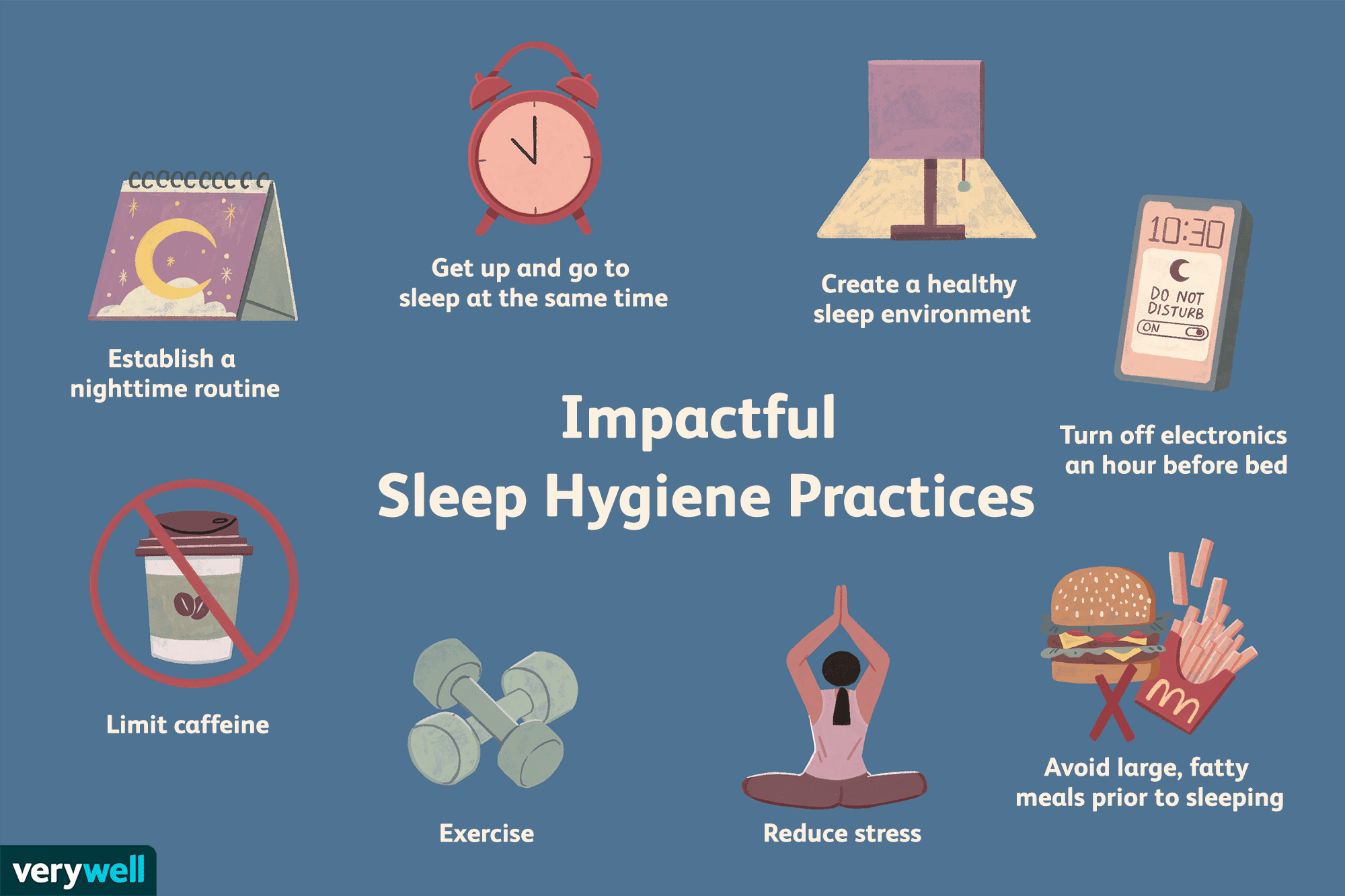The Importance of Sleep Hygiene: A Comprehensive Guide to Better Sleep
Introduction
A variety of routines and behaviors that promote regular, undisturbed, and rejuvenating sleep are collectively referred to as sleep hygiene. Making proper sleep hygiene a priority is essential for our general health and wellbeing. Insufficient sleep can lead to various health complications, including obesity, diabetes, cardiovascular issues, and mental health disorders. We will explore the importance of sleep hygiene, its key elements, and useful advice to improve the quality of your sleep in this book.
Understanding Sleep Hygiene
Sleep hygiene involves several factors that affect how well we sleep. These include your sleep environment, daily routines, and lifestyle choices. You may greatly enhance both the quality of your sleep and your general health by understanding and implementing good sleep hygiene techniques.
The Science of Sleep
Sleep is a complex biological process that is crucial for both physical and mental health. During sleep, our bodies engage in vital restorative functions, such as muscle repair, memory consolidation, and hormone regulation. The National Sleep Foundation recommends that adults aim for seven to nine hours of sleep each night for optimal health.
The Consequences of Poor Sleep Hygiene
Neglecting sleep hygiene can lead to a host of negative outcomes. Chronic sleep deprivation can impair cognitive function, diminish productivity, and heighten the risk of accidents. Furthermore, inadequate sleep can contribute to mood disorders like anxiety and depression. Recognizing these consequences underscores the importance of making sleep hygiene a priority in our daily lives.
Key Components of Sleep Hygiene
1 Consistent Sleep Schedule
Establishing a regular sleep schedule is one of the most effective ways to enhance sleep hygiene. Your body’s internal clock is regulated when you go to bed and wake up at the same time every day. This helps you fall asleep more easily and supports your natural sleep-wake cycle..
2 Creating a Sleep-Inducing Environment
Your ability to fall and stay asleep is greatly influenced by your sleeping environment. The quality of your sleep can be significantly improved with the help of pillows, a comfy mattress, and appropriate bedding. Additionally, consider factors like room temperature, noise levels, and light exposure. A cool, dark, and quiet room is ideal for promoting restful sleep.
3 Limiting Exposure to Screens
Limit screen time in the hour before bedtime to improve sleep hygiene. Instead, take a warm bath, read a book, or meditate to help your body get ready for sleep.The hormone that regulates sleep, melatonin, can be disrupted by blue light from displays.
Mindful Consumption of Food and Beverages
What you eat and drink throughout the day can significantly affect your sleep quality. Steer clear of heavy meals, caffeine, and alcohol right before bed. Caffeine can linger in your system for hours, making it difficult to fall asleep, while alcohol may initially induce drowsiness but can disrupt your sleep cycle later in the night.
4 Incorporating Physical Activity
By lowering stress and anxiety levels, regular exercise can improve sleep. Try to get in at least 30 minutes of moderate exercise most days of the week, but steer clear of intense workouts just before bed because they might make it difficult to fall asleep.
5 Establishing a Relaxing Bedtime Routine
Creating a calming bedtime routine signals to your body that it’s time to wind down. Consider incorporating activities like reading, gentle stretching, or practicing mindfulness meditation. A consistent routine can help you transition from the busyness of the day to a state of relaxation conducive to sleep.
6 Managing Stress and Anxiety
Having a lot of stress and anxiety can make it hard to sleep. Make stress-reduction practices a part of your everyday routine, such writing, yoga, or deep breathing exercises. Finding healthy ways to cope with stress can improve your overall sleep hygiene.
7 Limiting Naps
While quick naps have their advantages, prolonged or erratic daytime naps might have a detrimental impact on sleep at night.. If you choose to nap, limit it to 20-30 minutes and avoid napping late in the afternoon to ensure you feel tired enough to fall asleep at night.
Seeking Professional Help When Needed
If you consistently struggle with sleep despite implementing good sleep hygiene practices, it may be time to seek professional help. Sleep apnea and insomnia are two examples of sleep problems that can seriously affect your quality of life. A healthcare professional can help diagnose any underlying issues and recommend appropriate treatments.
Conclusion
Prioritizing sleep hygiene is essential for achieving better sleep and overall health. By implementing the key components discussed in this guide, you can create an environment and routine that promotes restorative sleep. Remember, improving sleep hygiene is a gradual process, and consistency is key. With dedication and effort, you can enhance your sleep quality and enjoy the numerous benefits that come with a good night’s rest.
Final Thoughts
It’s simple to undervalue the significance of sleep in the fast-paced world of today. However, by understanding and practicing good sleep hygiene, you can take control of your sleep quality and overall well-being. Start making small changes today, and experience the positive impact that better sleep can have on your life.











